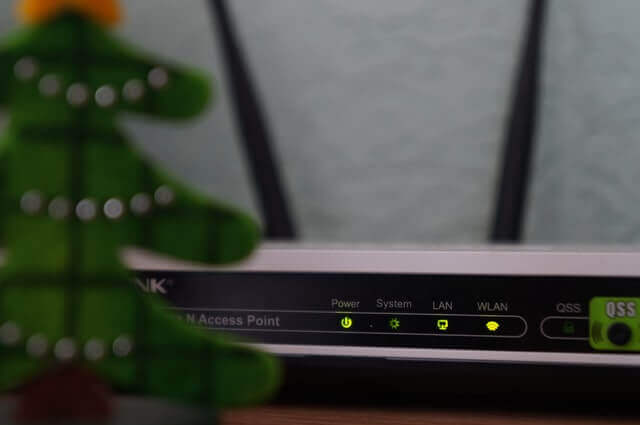Traditionally, the concept of working remotely might have seemed like a perk—an unorthodox lifestyle choice that could work in certain fields, but an approach that’s too difficult for the demands of the legal profession.
But when one looks more closely at how to work remotely as a legal professional—how many lawyers are already doing so, and what’s really possible in today’s technology-supported legal sphere—remote legal work seems more and more viable, and perhaps even ideal. In fact, following COVID-19, legal professionals—and indeed many British—are now looking at remote work not as a once-in-awhile perk but as an option with the potential to protect their families, their clients, and their communities.
Whether you’ve considered working remotely as a legal professional in the past, or whether you’re looking into it for the first time now, this guide contains clear, practical tips for running a remote legal practice without interruption. We’ll cover a range of topics, including tips to follow for successful remote work, a basic list of tools to use for remote lawyering, and an example one fully remote law firm.
The Complete Guide to Working Remotely as a Lawyer
In this in-depth guide, we’ll cover practical tips for working remotely, whether you’re completely new to remote work or you have tried it in the past.
Download NowCan solicitors work remotely?
First, you might ask yourself, is this really possible? Can a legal professional work remotely?
While the answer depends on your practice area and what a typical day looks like for you, the short answer is “yes.” As David Turney successfully demonstrates with a fully virtual law firm, Avery Law, it’s absolutely possible to complete some or all of your legal work remotely—and also provide an excellent client experience while not in the office.
Of course, if you need to go to court, it’s difficult to get around that, but certain circumstances may render that point moot as well.
With modern technology, legal professionals can take care of legal work online—drafting and reviewing legal documents, getting them signed electronically (in most cases), and keeping clients up-to-date while still ensuring client and firm data is kept secure and confidential. It’s simpler than many would expect: If you use any sort of computer program currently, you should be able to set yourself up to work from home or elsewhere.
9 tips for lawyers working remotely
If you’re considering working from home or just away from the office as a solicitor, or are transitioning some or all of your team, the following tips will guide you towards a successful remote-work experience.
1. Communicate changes clearly
If you’re shifting from a more traditional law firm model, like a high street firm, to remote work—whether permanently or temporarily—it’s absolutely critical that you clearly communicate any changes and new policies with clients, colleagues, and staff.
Send an email making it clear that you’re shifting to remote work, and set expectations for which communication channels to use, how meetings will take place, and how often you’ll be contacting clients. If in-person meetings will no longer take place, let everyone know far in advance so they can adjust their plans. Make the switch to video conferences easy by adding links to video invites within the notes section of any calendar events, and consider using a program like GoTo by LogMeIn to communicate with your client and collaborate on files remotely.
By communicating clearly, you can make the transition as smooth as possible for everyone involved. Also, if you’re clear about why you’re working remotely, clients can understand and help them see the changes in a positive light.
When it comes to your staff, speak to any regular staff about how you’ll work together while you’re remote, and let staff know if they’re meant to work remotely as well. If you initially think some staff need to come to the office while you’re remote (to use equipment or to answer the phones), consider if different options (like a portable scanner and a VOIP phone service) would negate this need and allow them to work remotely, too.
If you’re closing your offices, put a notice on the homepage of your website and a sign on the door (that includes information on how to reach you) so those who come knocking don’t feel like they’ve hit an impasse.
2. Ensure your internet connection is robust

If you’re working remotely, a strong internet connection is critical to your success.
As a legal professional, you can’t have the internet dropping off in the middle of an important video conference meeting if you’re working remotely.
Furthermore, if you need to collaborate with clients, staff, and colleagues on important legal documents, they’ll need to be stored in the cloud rather than locally on your computer—and a strong internet connection ensures fast and easy access to your work.
How can you tell if your internet connection is “good” enough? If you have a broadband internet connection, you should be fine.
You can also test your internet speed for free and talk to your internet provider about the level of speed and stability you’re getting with your current package, and upgrade if needed. If you’re working abroad, consider investing in a portable Wi-Fi hotspot (or use your iPhone or Android smartphone as a hotspot) to avoid troubles with spotty hotel Wi-Fi—just make sure you’re paying for plenty of data to cover your working needs.
Do you need a remote-access VPN to work from home?
A remote-access virtual private network (more often referred to as a VPN) is exactly what it sounds like: It allows users (e.g., legal professionals) to securely connect to a private network (e.g., one at a law firm) from a remote location. If your firm uses on-premise case management software, or if your files are stored locally on your firm’s network, you’ll need to set up a VPN in order to access key case details and documents. Learn more guidance for organisations using a VPN here.
However, if you use a cloud-based case management system like Clio, you don’t need to worry about a VPN: Simply log in via your web browser for safe and secure access to all of your files.
3. Set up remote access to cases and documents
Filing cabinets aren’t exactly portable, and posting paper documents between yourself, staff, clients, and colleagues when not in the office will quickly become cost-prohibitive.
With that in mind, it makes sense to ensure you have access to as many documents and case details as possible online if you’re planning to work remotely.
Scan paper documents
First, digitise anything you might need that’s paper-only and not already scanned into your computer or the cloud. You can do this yourself, put a staff member in charge of scanning documents, or find a legal document scanning service to digitise existing documents for you. You’ll also need a scanner to take with you wherever you’re working from if you don’t have one already (more on that later).
Store documents in the cloud
If you’re planning to work remotely for an extended time period, and others at your firm are as well, you’ll need to take special precautions to ensure your law firm’s server is protected from potential fires, floods, power outages, or other possible problems, and—depending on the situation—taking these precautions may be extremely difficult. If you’re planning to work remotely full-time, you may not need a law firm server at all!
For these reasons, cloud-based document storage is essential. Cloud-based document storage solutions allow you to securely access your files and easily collaborate on them from anywhere in the world, as long as you have an internet connection.
Clio offers unlimited document and file storage. Other cloud-storage solutions include Dropbox and Box.
4. Consider your clients’ remote experience
Clients will be looking for you and your services whether you’re working remotely or not. If you want your remote legal practice to be successful, you must provide clear information on your website, create a streamlined onboarding process, and be frank about the fact that you’re working remotely and what experience clients can expect.
Even if you’re only temporarily remote, your ability to be flexible and show that you’re still available to clients could very well lead you to connect with clients who’d otherwise have a difficult time getting the legal help they need.
Consider offering consultations over the phone or via video to create peace of mind for potential clients, and send newly signed clients a welcome letter with details like how best to contact you, how often to expect communications, and what times you’ll be available. While you’re at it, send a modified version of the letter to existing clients as well.
5. Keep client communications secure

If you’re working remotely, you’ll need to offer multiple secure ways to communicate with your clients—at the very least, you should be able to provide case updates and ongoing communications online, via text, or over the phone.
With many communications methods available, the key thing is to make sure any channels you’re using are encrypted and secure. As a legal professional, you need to uphold your duty to keep client information confidential, and if communication channels aren’t encrypted, it’s all too easy for others to gain access to client conversations.
Tools like Skype are fine for short video chats where you won’t be discussing anything substantial, but when you’ll be discussing sensitive information with a colleague or client, we recommend tools like GoToConnect by LogMeIn.
For longer messages, document sharing, and invoice sharing, email can work. However, legal professionals should ensure they’re using an encrypted email service. We recommend a secure client portal like Clio Connect for secure communications and document sharing.
6. Set up post-box forwarding
Depending on how you’re running your practice currently, and depending on the type of law you practice, going completely paperless may take some time.
If you’re working remotely temporarily, contact your local postal service to set up a temporary post forward from your office to the address you’ll be working at.
You can also minimise post (and its associated costs) by opting to receive bills for any business expenses online, and by sharing client invoices online as well. For example, with case management solutions like Clio, you can easily share invoices via email or a secure client portal like Clio Connect.
7. Be accessible by phone

Even if you don’t have an office, there are still clients who will want to contact you via phone.
For temporary remote work, forward calls from your number at your law firm to your mobile phone, or another number you can easily access while away from the office. For permanent remote work, consider switching to a Voice over Internet Protocol (VOIP) phone service, such as GoTo by LogMeIn, which allows you to make phone calls from your computer.
It’s also worth investing in a headset for top-notch sound quality on any calls.
A virtual receptionist service like LEXReception can also help. With a virtual receptionist service, you’ll make sure no calls get missed, ensuring an excellent client experience, and guarding against potential new clients slipping through the cracks. This can be helpful if working remotely means you’ll need to handle more calls than you’re used to, if you’ll be working in a different time zone, or if you’ll be working irregular hours.
8. Present a professional appearance
With the power of technology and a strong internet connection, you can meet anyone, anywhere, anytime with video meetings with clients, colleagues, suppliers, and a variety of other people—but that doesn’t mean your professional standards should lapse.
It’s a given that you’ll need to look professional for video meetings, but with some effort and planning, you’ll look extra smart and create a strong, positive impression on clients and other legal professionals.
- Tidy your background. It’s important to meet professional contacts from a professional-looking space. What’s the view behind your computer? Clean any shelves, and keep the kitchen or laundry baskets out of sight. If all else fails, just sit in front of a blank wall.
- Prevent distractions. Lock the dog out of the room, give a heads up that your kids are home, and turn down the volume of other devices (or turn them off). If you’re not at home, find a quiet place to meet.
- Choose strong lighting. Harsh or dim lighting can make it appear as if something is off when you’re on video. Choose a room with stronger-than-you-think-you-need incandescent light (or LED energy-saving lights that imitate incandescent light).
- Keep your video on. Best video meeting etiquette is to always appear on video. It shows you’re present and engaged in the conversation, and gives your clients and colleagues visual cues about how you’re reacting. Of course, if you’re feeling poorly and toughing it out to get work done, it’s fine to turn off your video—just tactfully explain the situation to the person on the other end.
- Use a headset. Today’s laptop mics are strong, but a headset provides crisp, professional sound quality on your calls—a critical consideration if someone on the call has low hearing.
- Mute yourself when it’s not your turn to talk. From construction going on down the street to your own typing, background noise is louder than you think on the other end of the video. Consider your surroundings, and mute yourself if needed; just be sure to give your full attention to the video camera (and maybe disregard this rule for 1:1 meetings).
9. Take care of your mental health when working remotely

No matter why you’re doing it—or where you’re doing it from—remote work can be isolating. If you’re used to interacting with others directly on a daily basis, suddenly sitting alone all day can be a tough change for your mental health. To combat the downside of remote work, create a routine, and create some distance between your work and personal life. Here are some tips:
- Dress like you’re going to work. A common trope of remote work is the worker who sits in pyjamas all day. However, this isn’t a great look for conference calls, and won’t make you feel great either.
- Set office hours. Without a commute and a separate space for work and home, it’s easy for your work and your personal life to blend together. It takes a tremendous amount of self control to only work during certain hours and separate work and life. Try taking a short walk at the start and end of your day to create a mental boundary between your work and personal time.
- Work in the same area. Create a remote-work routine by working in the same space every day, preferably from a home office, or a setup resembling one. If you’re sharing limited space with someone else who’s also working remotely, set a clear schedule for video meetings in the most appropriate locations, and/or stake out your own clear workspaces.
- Ring a friend or coworker. If you’re not regularly in contact with others while working remotely, prioritise calling or video chatting with one person each day—whether it’s a friend or colleague. Even if it’s only for five minutes. This is a small promise to keep and can help combat the effects of isolation.
- Step away from screens. As a legal professional, there’s always more work to do. If you love your job, it’s easy to sit in front of a laptop all day in the name of productivity—but that’s a recipe for burnout. You need to take care of yourself in order to take care of your clients, so unless there’s an emergency, stick to your work hours and unplug outside of that time.
You may like these posts
Tools checklist for remote work for legal professionals
For optimal remote work, there are certain tech essentials that you’ll need. In the following list, we’ve collected the tools mentioned earlier in this guide—as well as a few others—for your convenience.
Laptop
It’s a given: You’ll need a computer to conduct legal work remotely. If you’re planning to work remotely permanently or extensively, it might make sense to invest in a desktop computer.
However, today’s laptops are cost-effective and powerful, and give you the flexibility of being mobile if needed.
If you want a larger screen, consider investing in a laptop and a large display monitor instead of a desktop. This will give you maximum portability while still ensuring you can see all your work on an extra-large screen.
Just make sure your laptop has enough processing power to handle your work; You can’t have your computer crashing each time you go to edit a large legal document. This list of the best laptops of 2020 is a good place to start if you don’t currently own one.
Scanner
Even with a mostly paperless practice, you’ll need to be prepared to keep the odd letter or document organised in the cloud.
Scanner models like the ScanSnap iX100 are an excellent choice: They connect wirelessly to your smartphone, tablet, PC, or Mac, allowing users to save files directly to the cloud. These scanners also produce text-searchable PDFs—a must for sorting, identifying, and accessing the correct files easily.
ScanSnap also integrates directly with Clio, so you can save files directly to the correct file in your case management software.
Headset
While modern computer mics are powerful, it’s a good idea to invest in a headset for clarity during important calls. This is especially important if anyone on the call has low hearing for any reason, or if you’re sharing your space with other people. Try choosing one of the top headsets from this list of the best business headphones and earphones for 2020 of varying prices.
Cloud-based email
If you use an email program that depends on a local server, it’s worth switching to something secure and cloud-based when working remotely. This ensures you’ll be able to access your email from anywhere. Follow best practices for email encryption to keep communications secure. Microsoft Outlook is an excellent choice.
Cloud-based case management software
Keep all your cases, bills, calendars, and more organised in one place with case management software like Clio. With unlimited document storage and the ability to access case details from anywhere, a solution like this will be your law firm’s critical hub when working remotely.
Secure client portal
It’s absolutely crucial to be able to securely share documents and sensitive communications with clients, wherever you are. Part of your subscription to Clio, Clio Connect is a secure client portal that lets you easily share whatever you need with clients.
Phone provider
Whether you’re working at home or abroad, you need to be reachable at your business number. If you’re working from home, you can ask that calls be forwarded there, but a VOIP provider like GoTo by LogMeIn will ensure any calls to your business number go directly to you.
Video meeting program
As we noted earlier, working remotely means you’ll need a replacement for meeting clients in-person. You need to look sharp, but communications need to stay secure. Jive fits the bill.
Virtual receptionist service
A virtual receptionist service helps ensure that no call goes unanswered while you’re working remotely. There are plenty of options available that work for remote solicitor, including, LEXReception
Something you need missing from the list? Check out our overview of how to choose tech that’s compatible with your firm.
How one English firm works remotely
Many innovative legal professionals and law firms are already successfully working remotely. Whether they work from home or elsewhere, by choice or by necessity, permanently or temporarily, these firms are able to continue doing important legal work beyond the constraints of a traditional office.
Avery Law
One particularly good example of work-from-home solicitors is found with the case of Avery Law.
The boutique city firm uses cloud-based technology like Clio to manage the majority of their operations—a contemporary strategy that allows the firm to eschew traditional models and be fully virtual.
“Most law firms are still traditional law firms,” says David Turney, who helms Avery Law as one of two managing partners. “We’re a boutique law firm that has the ability to operate almost virtually.”
By working virtually, the firm avoids many of the typical costs of maintaining a traditional legal workplace (such as maintaining a physical office space) while improving efficiency and giving staff greater freedom to work to their strengths—from wherever they want.
Learn more about Avery Law’s story.
Conclusion
As a legal professional, it’s entirely possible—with the right preparation and support—to work remotely in today’s digital age. Equipped with the proper tools, and by following a few key best practices, you’ll continue to run a profitable firm while providing good client experiences. Depending on the situation, your clients may even appreciate the convenience and efficiency of a remote experience.
By selecting secure tools, communicating clearly and effectively about how your remote practice will work, and maintaining a strong internet connection, your firm can thrive from anywhere.
Want to see how Clio can enable remote work from anywhere?
Ask for your free demonstration.
The Complete Guide to Working Remotely as a Lawyer
In this in-depth guide, we’ll cover practical tips for working remotely, whether you’re completely new to remote work or you have tried it in the past.
Download NowWe published this blog post in March 2020. Last updated: .
Categorized in: Business
Explore AI insights in our latest report
Our latest Legal Trends Report explores the shifting attitudes toward AI in the legal profession and the opportunities it brings for law firm billing, marketing, and more.
Read the report





